Coincidentia Oppositorum, Negative Theology, and the Path to Enlightenment
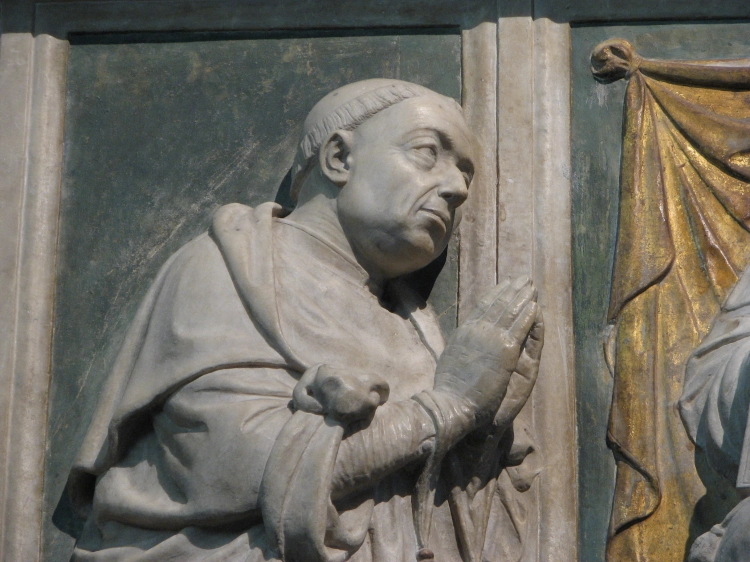
Nicholas of Cusa (1401-1464), also known as Cusanus, was a prominent 15th century German philosopher, theologian, and mystic whose visionary ideas had a profound impact on the development of Western thought and spirituality. His concepts of coincidentia oppositorum (the coincidence of opposites), learned ignorance (docta ignorantia), and negative theology challenged the dominant Aristotelian-Scholastic worldview of his time and anticipated key insights of modernity, such as the paradoxical nature of reality, the limits of human knowledge, and the importance of subjective experience.
Cusa’s Life and Works
Born in Kues, Germany, Nicholas of Cusa received a comprehensive education in canon law, philosophy, and theology at the universities of Heidelberg, Padua, and Cologne. He served as a papal legate and was involved in various ecclesiastical and political affairs throughout his life, including attempts to reform the Church and reconcile the Eastern and Western Christian traditions.
Cusa’s most significant works include On Learned Ignorance (De Docta Ignorantia), On Conjectures (De Coniecturis), On the Vision of God (De Visione Dei), and On the Hunt for Wisdom (De Venatione Sapientiae). In these writings, he developed a unique philosophical and theological system that sought to bridge the gap between medieval Scholasticism and the emerging Renaissance humanism, emphasizing the importance of intellectual curiosity, spiritual experience, and the recognition of human finitude.
The Coincidence of Opposites
At the heart of Cusa’s thought is the concept of coincidentia oppositorum, or the coincidence of opposites. According to Cusa, God, as the infinite and absolute maximum, transcends all human categories and distinctions, including the binary oppositions that structure our rational understanding of reality. In God, all opposites coincide and are reconciled: the one and the many, the eternal and the temporal, the absolute and the relative.
For Cusa, this insight has profound implications for theology, epistemology, and spirituality. It suggests that our rational concepts and categories are ultimately inadequate for grasping the nature of the divine, and that true knowledge of God requires a form of learned ignorance, a recognition of the limits of human understanding. At the same time, the coincidence of opposites points to the fundamental unity and interconnectedness of all things in God, a unity that transcends the apparent differences and contradictions of the world.
Learned Ignorance and Negative Theology
Closely related to the idea of coincidentia oppositorum is Cusa’s concept of learned ignorance or docta ignorantia. For Cusa, true wisdom consists not in the accumulation of positive knowledge, but in the recognition of the inherent limitations of human understanding. Given the infinite and incomprehensible nature of God, our rational concepts and categories can only provide a partial and inadequate grasp of the divine reality.
This emphasis on the limits of human knowledge led Cusa to develop a form of negative theology, a way of speaking about God that proceeds by way of negation rather than affirmation. Instead of making positive statements about God’s attributes or qualities, negative theology emphasizes what God is not, acknowledging the fundamental ineffability and incomprehensibility of the divine nature.
For Cusa, this apophatic approach to theology is not a form of agnosticism or skepticism, but rather a way of opening up a space for mystical experience and spiritual transformation. By letting go of our rational concepts and categories, we can enter into a state of intellectual and spiritual openness, a receptivity to the divine presence that transcends all human understanding.
The Vision of God and Mystical Experience
Cusa’s philosophical and theological ideas are intimately connected to his understanding of mystical experience and spiritual transformation. In his work On the Vision of God (De Visione Dei), he describes a form of contemplative prayer in which the soul ascends to a direct, unmediated experience of the divine.
For Cusa, this mystical vision of God is not a matter of acquiring new information or knowledge, but rather a transformation of consciousness, a shift in the very way we perceive and understand reality. In the mystical experience, the duality between subject and object, knower and known, is transcended, and the soul enters into a state of union with the divine.
This emphasis on the transformative power of mystical experience reflects Cusa’s broader understanding of the Christian life as a journey of spiritual ascent, a gradual process of detachment from the world of sense and reason and a turning towards the infinite and eternal. For Cusa, the ultimate goal of human existence is theosis or deification, a participation in the divine life that transcends the limitations of human nature.
Cusa and the Renaissance
Cusa’s ideas had a significant impact on the development of Renaissance thought and culture. His emphasis on human creativity, intellectual curiosity, and the importance of subjective experience anticipated key themes of Renaissance humanism, while his critique of Scholasticism and his openness to diverse philosophical and theological traditions helped to pave the way for the intellectual ferment of the 15th and 16th centuries.
At the same time, Cusa’s thought stands in creative tension with some of the dominant trends of the Renaissance, particularly the growing emphasis on human autonomy and the celebration of worldly knowledge and power. For Cusa, true wisdom and fulfillment are to be found not in the assertion of human independence or mastery, but in the recognition of our fundamental dependence on God and the surrender of the ego to the divine will.
Cusa and Depth Psychology
Cusa’s ideas have also had a significant influence on modern depth psychology, particularly the work of Carl Jung and his collaborator, the physicist Wolfgang Pauli. Jung was deeply interested in Cusa’s concept of the coincidence of opposites, seeing it as a key to understanding the process of individuation and the integration of the unconscious.
For Jung, the coincidentia oppositorum is a symbol of the transcendent function, the psyche’s capacity to reconcile and integrate opposing tendencies and forces within the personality. Just as in Cusa’s theology all opposites are reconciled in the infinite nature of God, so in Jung’s psychology the process of individuation involves the bringing together of conscious and unconscious, masculine and feminine, good and evil, in a higher synthesis or unity.
Pauli, too, was fascinated by Cusa’s ideas, particularly his notion of learned ignorance and his use of mathematical symbolism to express theological and philosophical concepts. For Pauli, Cusa’s thought anticipated key insights of quantum physics, such as the uncertainty principle and the complementarity of wave and particle descriptions of matter.
More broadly, Cusa’s emphasis on the paradoxical and irrational aspects of reality, and his recognition of the limits of human knowledge, resonate with the findings of modern physics and the broader intellectual currents of the 20th century. In an age of increasing specialization and fragmentation of knowledge, Cusa’s vision of the fundamental unity and interconnectedness of all things offers a powerful counterpoint and a source of inspiration for those seeking a more holistic and integrated understanding of reality.
Cusa and the Modern World
Cusa’s thought remains highly relevant to the challenges and opportunities of the modern world. In an age of increasing polarization and conflict, his emphasis on the coincidence of opposites and the need for intellectual humility and openness offers a much-needed corrective to the dogmatism and intolerance that characterize so much of contemporary discourse.
At the same time, Cusa’s vision of the human person as a microcosm of the divine, and his emphasis on the transformative power of mystical experience, speak to the deepest longings of the human heart for meaning, purpose, and spiritual fulfillment. In a world that often seems dominated by materialism and consumerism, Cusa’s thought points to a higher reality and a more profound understanding of human nature and destiny.
Ultimately, Cusa’s legacy lies in his unwavering commitment to the power of human reason and the human spirit to transcend the limitations of our finite existence and to participate in the infinite and eternal. His ideas continue to inspire and challenge us to this day, inviting us to embrace the paradoxes and mysteries of existence, and to embark on the great adventure of self-discovery and spiritual transformation.
Key Topics:
- The life and works of Nicholas of Cusa, his philosophical and theological system
- The concept of coincidentia oppositorum, or the coincidence of opposites, and its implications for theology, epistemology, and spirituality
- The idea of learned ignorance (docta ignorantia) and negative theology, and their significance for mystical experience and spiritual transformation
- Cusa’s influence on Renaissance thought and culture, and his relationship to Renaissance humanism
- The relevance of Cusa’s ideas for modern depth psychology, particularly the work of Carl Jung and Wolfgang Pauli
- The significance of Cusa’s thought for contemporary debates in philosophy, theology, and science, and its potential for addressing the challenges of the modern world
- The enduring legacy of Nicholas of Cusa and his contributions to Western intellectual and spiritual traditions
- In this comprehensive article, I have explored the key ideas and themes of Nicholas of Cusa’s thought, from his concept of coincidentia oppositorum and his emphasis on
- learned ignorance and negative theology, to his vision of mystical experience and spiritual transformation. I have situated Cusa’s ideas within the broader context of
- Renaissance thought and culture, and highlighted their relevance for modern depth psychology, philosophy, and science.
Bibliography:
Albertson, D. (2014). Mathematical Theologies: Nicholas of Cusa and the Legacy of Thierry of Chartres. Oxford University Press. Bond, H. L. (1997). Nicholas of Cusa: Selected Spiritual Writings. Paulist Press. Casarella, P. J. (2019). Cusanus: The Legacy of Learned Ignorance. The Catholic University of America Press. Clyde Lee Miller. (2017). Reading Cusanus: Metaphor and Dialectic in a Conjectural Universe. Routledge. Hoff, J. (2013). The Analogical Turn: Rethinking Modernity with Nicholas of Cusa. Eerdmans. Hopkins, J. (1986). Nicholas of Cusa’s Dialectical Mysticism: Text, Translation, and Interpretive Study of De Visione Dei. Arthur J. Banning Press. Jaspers, K. (1966). Anselm and Nicholas of Cusa. Harcourt, Brace & World. Meuthen, E. (2010). Nicholas of Cusa: A Sketch for a Biography. The Catholic University of America Press. Nicolle, J. M. (2004). Mathematics and the Divine in Nicholas of Cusa. The Journal of Religion, 84(2), 189-216. Nicholas of Cusa. (1997). Nicholas of Cusa on God as Not-Other: A Translation and an Appraisal of De Li Non Aliud. A.J. Banning Press. Nicholas of Cusa. (2001). On Learned Ignorance. Banning Press. Nicholas of Cusa. (2016). The Vision of God. The Catholic University of America Press. Thacker, E. (2018). Cosmic Pessimism (Univocal). University of Minnesota Press. Watanabe, M. (2011). Nicholas of Cusa – A Companion to his Life and his Times. Ashgate. Watts, P. (2016). Nicolaus Cusanus: A Fifteenth-Century Vision of Man. Brill. Wolfson, E. A. (2002). Alef, Mem, Tau: Kabbalistic Musings on Time, Truth, and Death. University of California Press.
Read More Depth Psychology Articles:
Taproot Therapy Collective Podcast
Mystics and Gurus











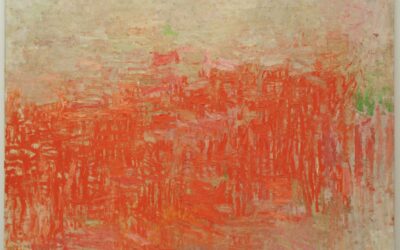
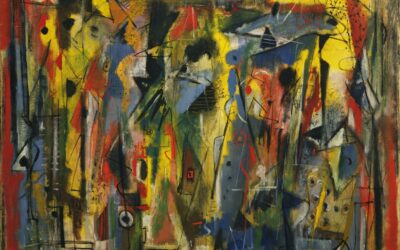
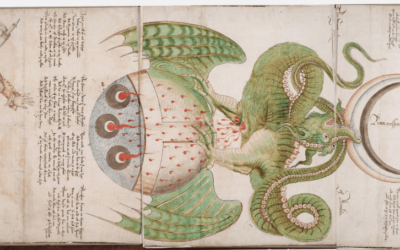





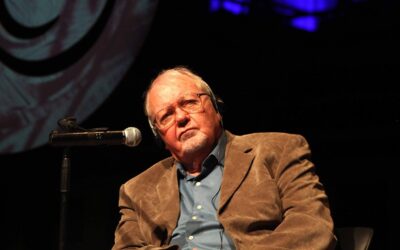

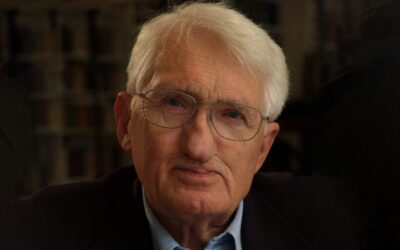
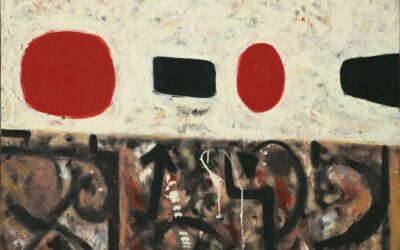
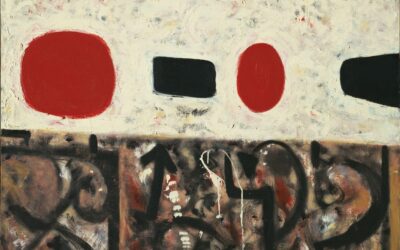


0 Comments